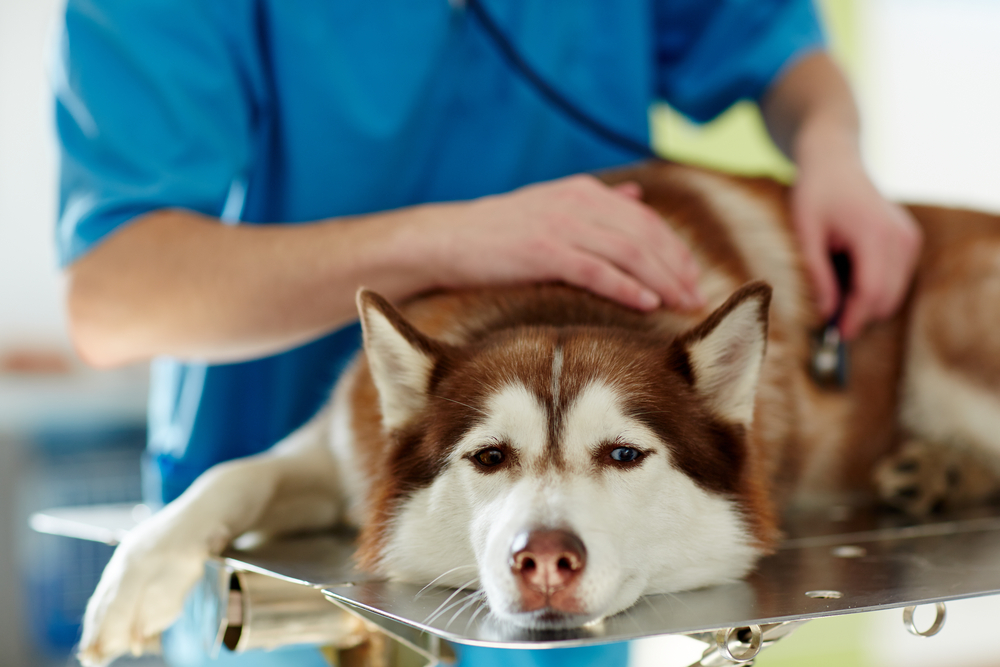Matcha can be found in a plethora of food and drink items, from lattes to ice cream. If you’re a fan of occasionally giving your canine companion a treat in the form of human food, you may be wondering if food containing matcha is something safe for them to consume. You might also wonder if the health benefits of matcha transfer to canines and if matcha is safe to add to your dog’s food, so they get those benefits. The answer is no; matcha isn’t safe for canines.
Why is matcha unsafe for our pups? After all, it’s chock full of health benefits! Unfortunately, it isn’t full of benefits for dogs; instead, it can be harmful to them, mostly because of the amount of caffeine it contains. Here’s what you should know about matcha and why you shouldn’t give any to your dog.


What Exactly Is Matcha?
You’re likely aware of foods like matcha lattes and matcha ice cream, but do you know what exactly matcha is? This ingredient is a powder formed from ground-up green tea leaves. So, it’s essentially green tea in powder form and, as such, contains caffeine and other things you’d find in a cup of green tea.
Besides enjoying the taste, people enjoy matcha for the health benefits it provides. Like green tea, matcha is full of antioxidants, which are beneficial for everything from warding off free radicals to keeping hearts healthy.




Why Can’t Dogs Eat Matcha?
Matcha isn’t healthy for canines and could cause severe health issues. Why is that? The main reason is due to the amount of caffeine found in matcha. Matcha contains a much higher amount of caffeine than regular green tea, and dogs are incredibly sensitive to caffeine—much more so than humans.
Signs of caffeine toxicity usually occur within 30 minutes to 2 hours of ingestion and your pup may show signs of hyperactivity , restlessness, a fast heart rate, tremors, vomiting and diarrhea. Dogs may also urinate more. In extreme cases toxicity can cause seizures, collapse and even death. So, giving your dog matcha or any food containing this ingredient could be dangerous.
Dangers of Feeding Matcha to Dogs
Caffeine is the most significant danger of matcha when it comes to canines. While caffeine can harm any dog, matcha can be particularly dangerous for smaller dogs, as they need to ingest a smaller amount of caffeine to experience toxicity compared to larger breeds. Pups with underlying health issues may be more sensitive to caffeine than healthy dogs, too.
There is another potential danger of matcha, though. Matcha also contains a compound known as theobromine, which is found in chocolate and is closely related to caffeine. Dogs are also more sensitive to this compound than humans. Matcha only has minute quantities of this theobromine, though, so your pup would have to eat an awful lot of it to be in severe danger from this compound. However, it can still cause a dog to develop diarrhea or vomiting in small doses.


Frequently Asked Questions
Have more questions about matcha and canines? We have answers!
Is matcha safe for dogs if it’s an ingredient in other foods?
Matcha is unsafe no matter how it’s given to your pup, as you never quite know the amount of matcha in a baked good or ice cream, etc. Plus, a lot of the human foods you’ll find matcha in contain an abundance of fat and sugar, both of which are unhealthy for your pet and can lead to adverse consequences if consumed too often.
What do I do if my dog is experiencing caffeine toxicity?
Call your vet immediately if your pup has eaten something containing matcha (or anything with caffeine) and if you suspect they are suffering from caffeine toxicity. Depending on the amount of matcha consumed and when it was eaten, vets may want to induce vomiting to remove it from the system before the caffeine can be absorbed, and may give activated charcoal. They may also want to support your dog with intravenous fluid therapy.


Are there dog foods or dog treats that contain antioxidants?
If you want your pup to have antioxidants in their diets, there are absolutely dog foods and treats that contain these. You don’t need to give them human food for them to receive these. You can also talk to your vet about whether an antioxidant supplement of some kind might be suitable for your pet.


Conclusion
Matcha may offer us many health benefits, but the same can’t be said for dogs. Matcha contains quite a bit of caffeine, which canines shouldn’t have as they are incredibly sensitive to this chemical. The theobromine found in matcha can also be harmful if a pup consumes enough of it. So, avoid giving your dog matcha or foods that contain matcha as an ingredient; they’ll be much safer this way!
Featured Image Credit: masa44, Shutterstock






